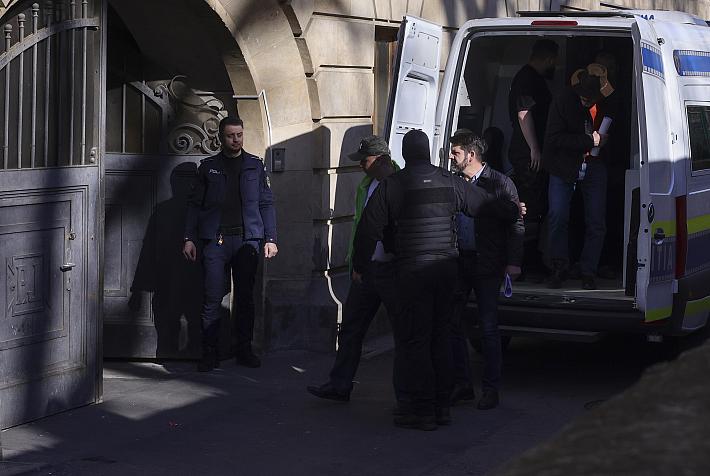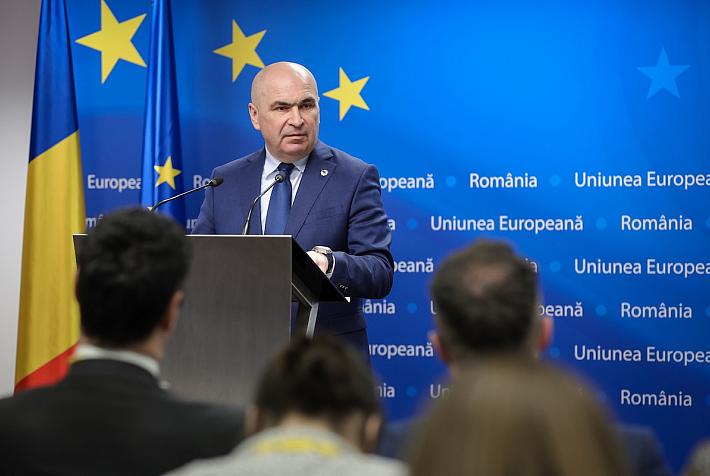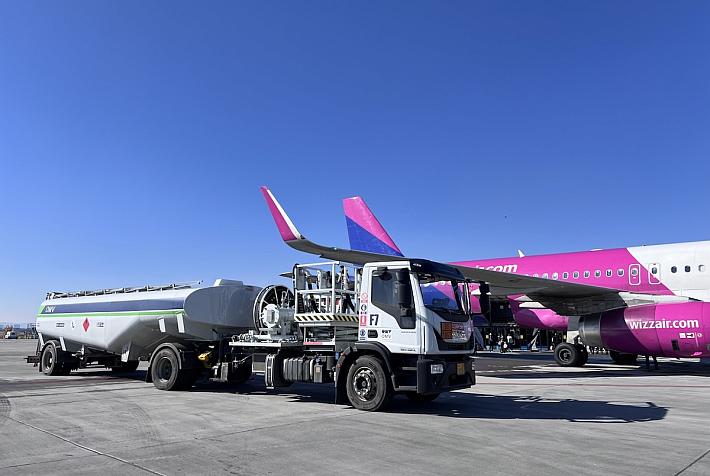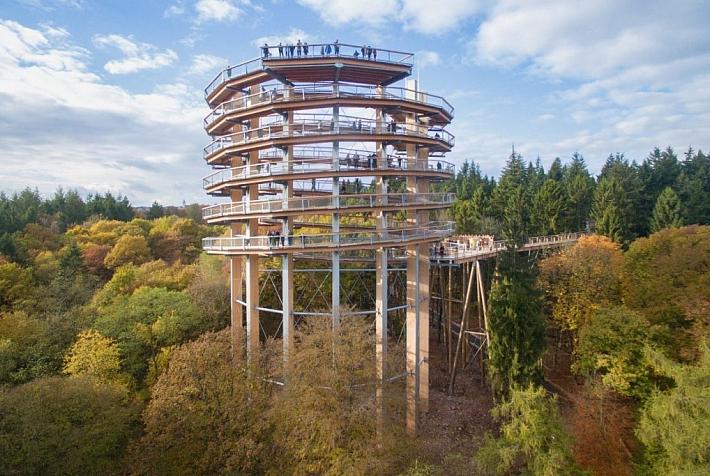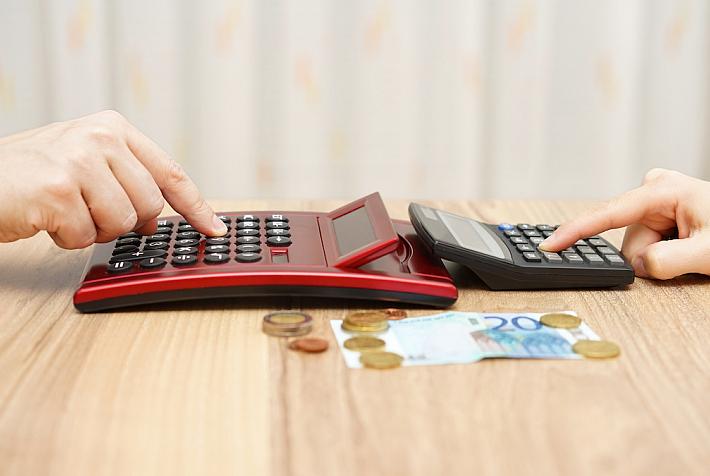Pumping life into a small Romanian town by reducing food waste

A group of young people have managed to snap a forgotten town in central Romania out of its post-industrial numbness by promoting an initiative to reduce food waste. Their efforts may bring the small town in Transylvania its first international prize.
Before you start reading the article, take a short moment and think about the food that you’ve thrown away this week. It could be apples, some rice, a bottle of milk half full, that avocado that never went into the salad because you were too tired to make the salad and you just ordered a pizza. We all have a list of food items that we throw away on a daily basis. We may feel a little bit guilty about throwing away that apple, which could still be eaten, but what the hell, we are busy people and we need to speed up, prioritize. So let’s buy fresh apples.
But a group of young people living in Aiud, a small town somewhere in the center of Romania, decided to address this problem at a slightly higher level. They started a project called Fara Risipa (Zero Waste) whose tagline sounds like a citizenship-inspired haiku: “Don’t throw away ugly food that doesn’t sell. Give it to a poor family in Aiud”. In three months, they collected over 800 kilograms of vegetables, which they donated to more than 60 people.
Their project has entered a European competition called REFRESH Food Waste Solution, through which the European Union tries to reduce food waste. The young team from Aiud now has the chance to be in the finals and present their project in Berlin, if they get enough votes. The whole town of Aiud, normally paralyzed and lacking excitement, has mobilized to support the project.
 “Why are you coming only now?”
“Why are you coming only now?”
Every Thursday, farmers from villages near Aiud come to the town’s weekly fair to sell vegetables, fruits, and dairy products. The farmers arrive early in the morning and leave at noon. On the rest of the weekdays, you can mainly find distributors, which import fruits and vegetables and sell them.
When the first group of volunteers arrived in the Aiud market on a Thursday morning last September to ask the farmers if they wanted to donate the vegetables that didn’t sell, but were still edible, instead of throwing them away, they received an unexpected reaction. “Why are you coming only now?”
Food waste management seems obvious once you are told about. Why not donate food to people who are hungry instead of throwing it away? And yet, this idea seems to escape us not only at individual level, but also at systemic level.
“You don’t throw away food, it’s a poor country. It’s as clear as A+B=C,” says Raluca Popan, an Aiud-born designer, who now lives in Cluj, and is part of the project. “It’s a good thing. I have no doubt. The reward is not material, but I can say that I don’t care now if there’s heaven or hell, I did my share,” she says laughing.
Raluc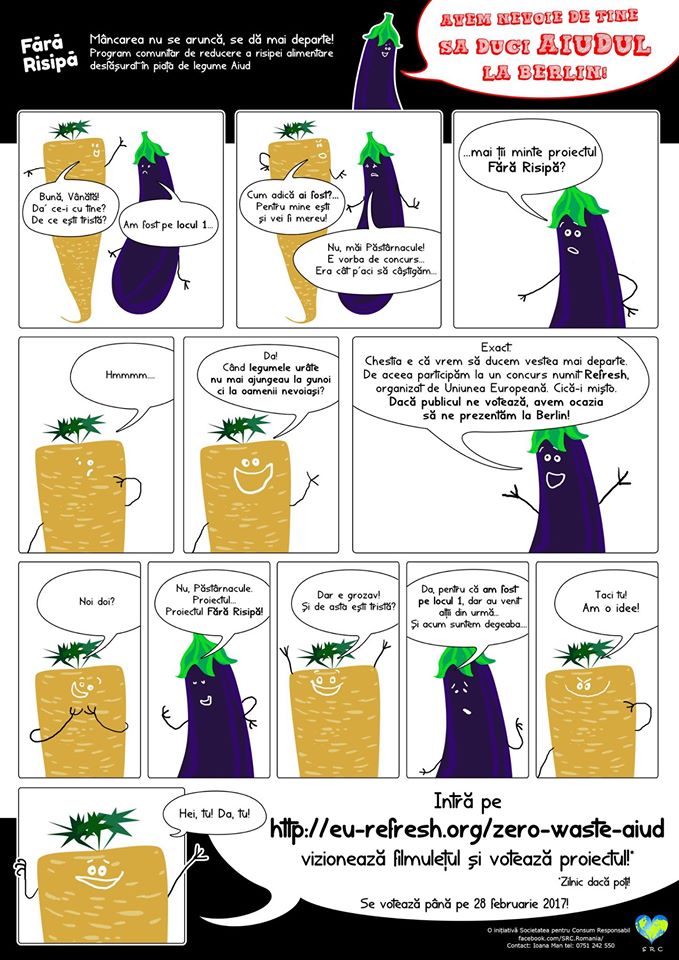 a is one of the members of the small team. She created different advertising materials to promote the project, including a comic strip between two vegetables talking about the number of votes the project is receiving. The sad eggplant is confessing to a parsnip that the project is no longer on the first place. The parsnip is not so melancholic, but more prone to action, and tells everybody to go to the link and give an extra vote to the project.
a is one of the members of the small team. She created different advertising materials to promote the project, including a comic strip between two vegetables talking about the number of votes the project is receiving. The sad eggplant is confessing to a parsnip that the project is no longer on the first place. The parsnip is not so melancholic, but more prone to action, and tells everybody to go to the link and give an extra vote to the project.
Other members include Ioana Man, the student who came up with the idea for this project after a visit to Italy, Diana Ioana Calin, a trainer and a consultant in durable development, in charge of the Society for Responsible Consumption, but also a recruitment specialist, a marketing expert and two teachers. Besides that, there is a small and dedicated team of volunteers who go to the Aiud market every Thursday to gather vegetables from farmers.
Food waste, a big problem in Romania
Romania generates 5 million tons of food waste every year, most of it being generated by consumers. Fruits, vegetables, and bread together account for over 60% of the total food waste in Romania, according to a study concluded by EPC Consultanta de Mediu for the local nonprofit Asociatia MaiMultVerde and published in November 2016.
About 50% of Romanians spend about 40% of their monthly income on food. In France or Switzerland people spend on average 14%, respectively 10% of their income on food. Given the proportions, Romania’s food waste has a stronger impact than in other EU countries. A quarter of Romania’s population lives in poverty and have difficulties in procuring daily food, according to the study.
At systemic level, Romania has been struggling for a time now to adopt a law on food waste. In October last year, the Chamber of Deputies finally adopted the bill on food waste, which obliges companies to donate or sell at reduced prices the food products that are close to expiry. The law introduces fines of up to RON 10,000 (EUR 2,200) for the companies that ignore the law’s provisions.
Encouraged by the farmers’ positive feedback, the volunteers in Aiud returned to the market every Thursday. They would come by car, park it outside, and then go into the market equipped with sacks. After several weeks, the farmers got to know the “Zero Waste” team, and simply called them to hand them vegetables or fruits. The volunteers even installed a shelf where producers were able to put the products they didn’t need anymore.
The volunteers would store the vegetables and fruits in the house of one of them for a few hours, and in the evening they would distribute them to the families in need. They got a list of people on welfare who could use the vegetables.
Post-industrial life
Until the ‘90s, half of the town’s population worked in a factory called “Metalurgica Aiud”, specialized in the production of equipment for metallurgy and metal constructions in Romania. The company went through a failed privatization, which decimated the number of employees from 1,200 in 2003 to 170 in 2013. On March 13, 2013, the company officially became bankrupt. The assets were put up for sale and operations ceased.
This has led to an economic block. However, the town, which has less than 23,000 inhabitants, could develop its tourism and agriculture, says the 29-year old Diana Ioana Calin, the founder of “The Society for Responsible Consumption” in Aiud.
The town is located between Alba Iulia and Cluj-Napoca. It is close to the protected area of Cheile Rametului, two massifs carved into Mesozoic Jurassic limestone, but it’s also close to the village of Remetea, which is a UNESCO protected monument. Aiud is situated along the river Mures, which means the town has the potential for agriculture.
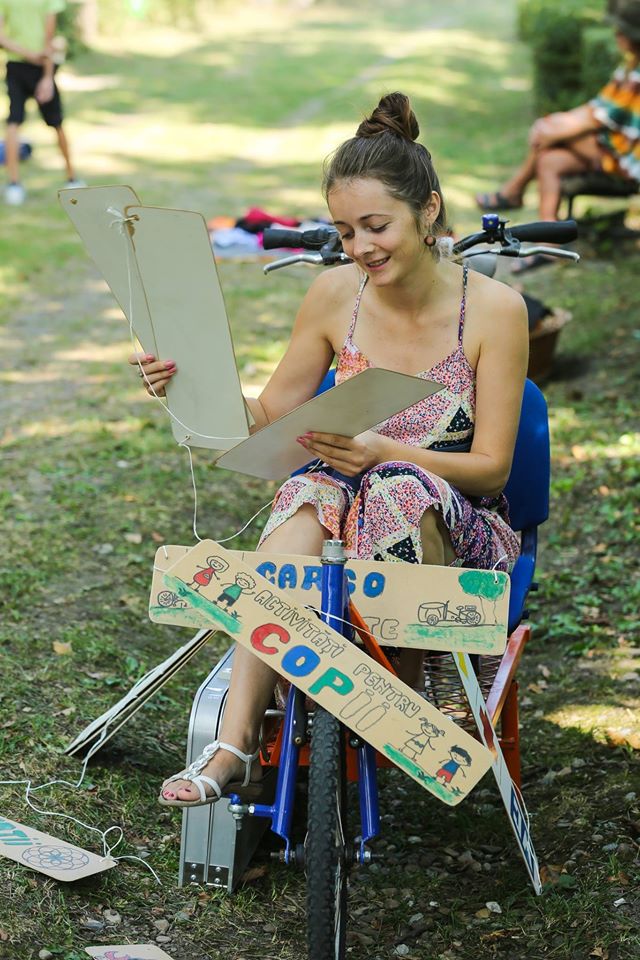 After several years of living in Bucharest and Cluj-Napoca, Diana Calin returned to her hometown in 2013. She had a remote job, which allowed her to work from home. Diana thought that she could work from her house in Aiud which has a big garden, instead of living and working in a small apartment in Cluj. At first, she didn’t do much in Aiud, but after a year or so, the young woman realized that she could actually get involved.
After several years of living in Bucharest and Cluj-Napoca, Diana Calin returned to her hometown in 2013. She had a remote job, which allowed her to work from home. Diana thought that she could work from her house in Aiud which has a big garden, instead of living and working in a small apartment in Cluj. At first, she didn’t do much in Aiud, but after a year or so, the young woman realized that she could actually get involved.
“Cluj and Bucharest have a lot of bright people, but small towns lack people who can snap them out of numbness,” she says. The woman believes that the migration of young people from these towns can be offset by social entrepreneurship. This way you get to engage people and offer them a reason to stay.
Something good is finally happening in Aiud
Aiud has a reputation that its inhabitants are not very proud of and would like to replace with something else. The town is known for the political inmates held in the Aiud prison, during the World War II when Ion Antonescu was in power, and later during the Communist regime. The opponents of the Communist regime were sent there.
The project “Zero Waste” was initially on the 40th place, but moved to the 4th place in just three days. It then further skyrocketed to the 1st place, then back to the 2nd one. People of Aiud posted support messages on Facebook groups encouraging their neighbors and friends to vote so that the project would return to the 1st place again.
Diana believes that the people of Aiud were proud that their town was finalist in a European competition. People were not particularly interested in the “zero waste” message, but were energized by the fact that something good is finally happening in Aiud.
The team expects that the project will become self-sustainable at a certain point, and that both farmers and consumers will be able to connect on their own to reduce food waste. But until then, volunteers prepare their sacks for a new Thursday.
By Diana Mesesan, features writer, diana@romania-insider.com







